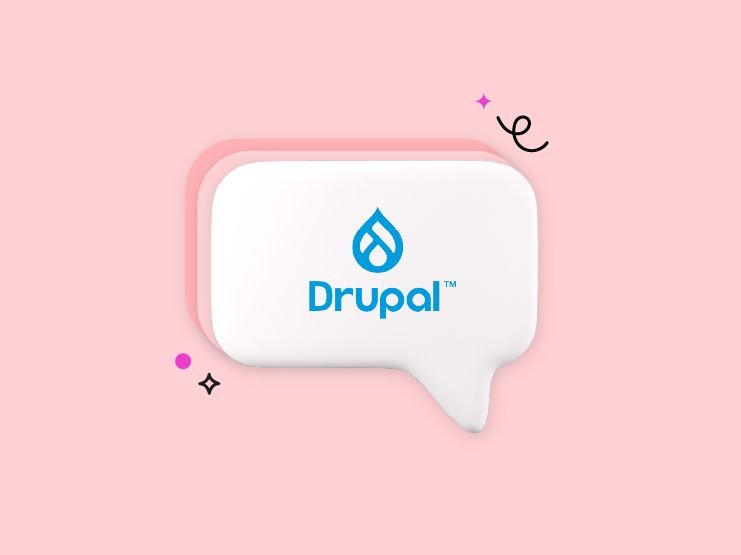If you’re running a Drupal website—or a fleet of Drupal websites—you’ve got a lot of choices for hosting them. Why pick option one over the other? Recently, there has been some back and forth between vendors calling out one another over why their solutions are better suited for Drupal than the others.
In this post, we want to give you the info you need to make smart choices about hosting and managing your modern Drupal applications.
The TL;DR: Because we do more than Drupal, we are the best choice for modern Drupal.
Modern Drupal isn’t monolithic, and neither are organizations that run it
Drupal has never existed in a technology vacuum. That’s more true now than ever before, with “Headless” or “Decoupled” architectures—combining a Drupal back end with a Javascript front end written in Angular, React, et al.—becoming the norm rather than the exception. Even ten years ago, when I created a Drupal app for NASA to search images and data from Mars, it involved multiple technologies. These included Drupal, Java, Postgres/PostGIS, Python, and Javascript—all to deliver a single digital experience. Now, with Platform.sh, I could run every component on a single platform.
Across organizations, it's rare for a single CMS to be adopted universally. There are many reasons for this: developer expertise, budget, and even internal politics. Supporting many languages and frameworks is good for us, and good for our customers. Real freedom comes from having a platform that can grow and shift with you as your needs evolve.
Platform.sh isn't exclusive to Drupal or WordPress by design. Instead, we let you run Drupal alongside your Node.js/Javascript app, Java, Python, and more at no extra cost. You can combine the front end and back end of your app in the same project, deployed automatically by us across our secure, containerized grid.
And you can add in services like Postgres, Kafka, Elasticsearch, Solr, Redis, RabbitMQ, and more, also with no additional costs or effort.
The
Platform.sh was incubated within Commerce Guys—the software vendor behind Drupal Commerce—and our team retains deep Drupal knowledge and expertise. We originally built Platform.sh to solve the challenges of building and running transactional ecommerce sites, where typical Drupal hosting scaling tricks like caching and CDNs aren't sufficient. Today, Platform.sh runs thousands of ecommerce sites (both Drupal and Magento), processing hundreds of millions of dollars in annual transactions.
Selecting the right platform for scalability is important, but sometimes your team will run into challenges. For that, we have a global team of support engineers spanning North America, South America, Europe, Africa, Oceania, and Asia.
Need hands-on support to keep your Drupal projects patched and secure? Platform.sh does that, too. Just ask us about Application Support.
Drupal developers deserve tools for the way modern developers work—with CI/CD built in
Platform.sh has been based around Git from the very beginning. We think of it as our main API. Do you need a new environment to work on a feature or to fix a bug? It's as simple as:
git checkout -b new-ideaThat's it.
One Git command, and Platform.sh clones your entire production app—data and all—in moments.
What does that mean, practically speaking?
Basically, you can have as many dev/stage/test environments as you need. No more waiting on the staging environment to be available, or calling an account manager to make changes to your project when you need more. Each environment has configurable access control and auto-generated (and free) SSL certificates.
Because deploying to production is basically a
git merge, and your team is developing on a perfect clone—including all the components and data of your [headless] Drupal site—you can be assured that what worked in dev is going to work in production. Our Deploy Friday motto isn’t just a marketing slogan; our customers live it.Because Platform.sh has a robust API, it's integrated with third-party tools you're probably already using, like GitLab, Bitbucket, and GitHub. Branches and pull requests created in those tools automatically generate (and clean up) environments in Platform.sh! That same API, coupled with our system of hooks and native support for tools like Headless Chrome, gives you a robust continuous integration solution for Drupal and other technologies—again, with no extra cost.
The Platform.sh API isn't limited to managing your current Drupal projects. With just a few commands, you can create new projects across regions around the world. This is how Platform.sh partners like GoalGorilla build their own successful SaaS businesses (Open Social) with Drupal and Platform.sh.
But wait! There's more
Modern Drupal 8 is built around two technologies that make developers’ lives easier. Composer simplifies dependency management for PHP applications, much like PIP for Python or NPM for Node.js. Instead of downloading and committing all of the dependencies for your Drupal site to your host, you describe them in a Composer file, and the Platform.sh CI/CD pipeline takes care of installing them and running any other build or deployment tasks.
The other technology at the heart of Drupal 8 is Symfony. As the 'cloud' powering Symfony Cloud and Magento Commerce, our Symfony expertise runs deep.
Choice is good. That's why we’re multicloud
Choosing which Infrastructure-as-a-Service (IaaS) provider to use can be a gamble, and once your die is cast, it's hard to switch. The same can be true of your hosting or PaaS provider. That's why most hosting providers work with a single IaaS partner.
Platform.sh makes it easy to use the IaaS provider that works best for your business, whether your choice is based on data locality for compliance, getting your application as close to your end users as possible, or simply preference. We can run your modern applications in the US, Canada, Australia, Ireland, Germany, and France.
Platform.sh works with four IaaS partners—Amazon Web Services, Google Cloud Platform, Microsoft Azure, and Orange—to give you the most choices and global reach. And you can run the same code across all four of these platforms without making any changes.
Need a custom location? Let's talk.
We take security and compliance seriously. For some countries and companies, that means hosting locally, too. Not only are we SOC 2 certified, we’re compliant with the German BDSG and strict data locality and access rules.
Power. Simplicity. Freedom
The best tools are the ones that fade into the background and let you get on with your work. At Platform.sh, that’s our goal.
From the beginning, we built the end-to-end platform that we’d want to use to build, run, and scale websites—no matter how many, or how large, or how many people were involved.
Platform.sh was created to give you choice, work the way your team does, and get out of your way.
 Switching to Platform.sh can help IT/DevOps organizations drive 219% ROI
Switching to Platform.sh can help IT/DevOps organizations drive 219% ROI Organizations, the ultimate way to manage your users and projects
Organizations, the ultimate way to manage your users and projects





